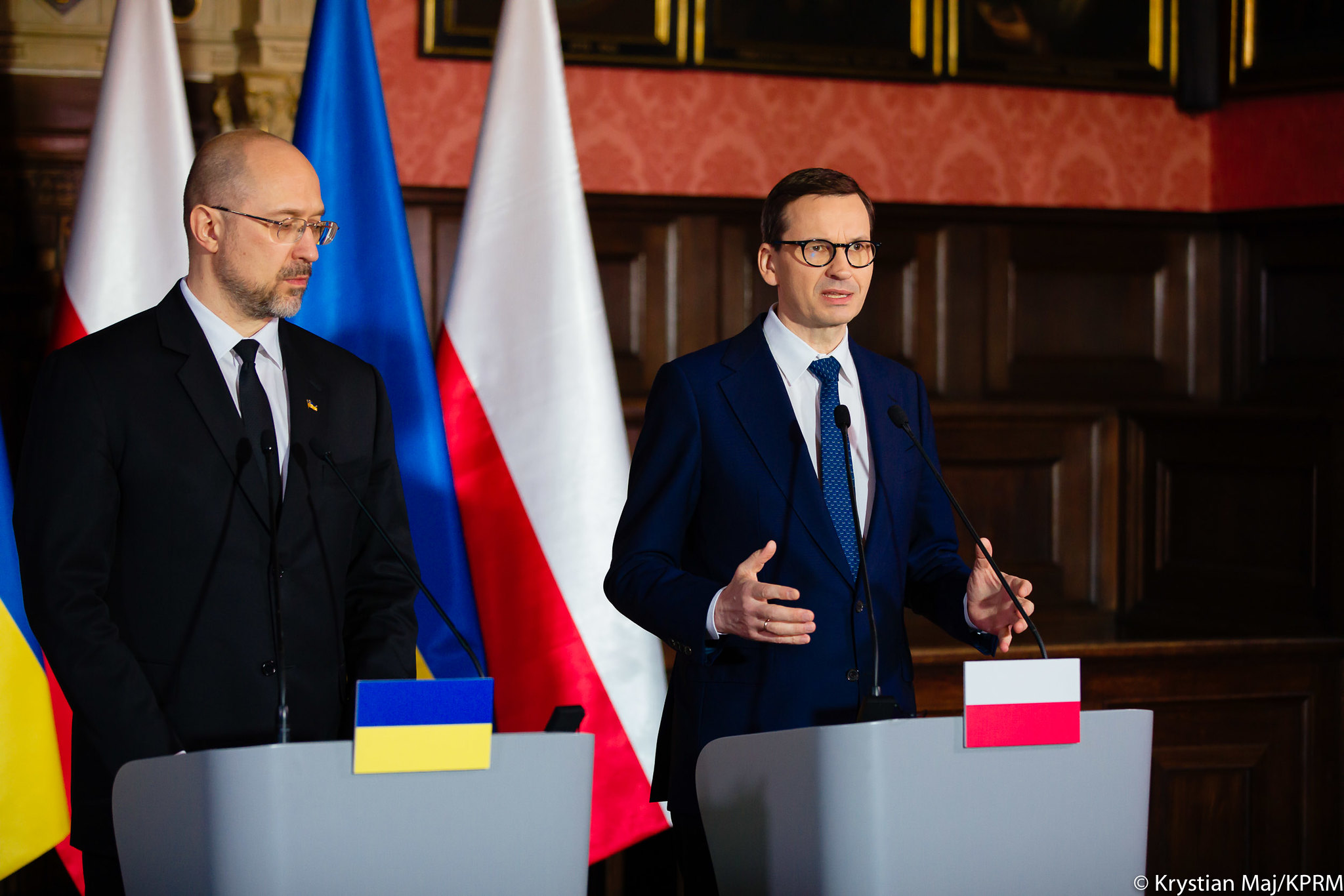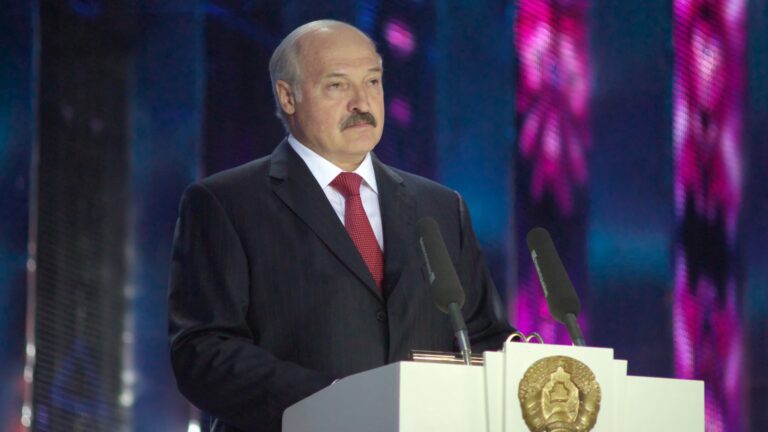
Russia’s invasion of Ukraine and China’s tacit approval for it have added additional impetus to the changes in the way political elites in Warsaw perceive Beijing. Although views still diverge among different actors and political parties, one thing is clear: China’s attempts to blur the distinction between the aggressor and the victim will not be tolerated.
Li Hui’s Not-So-Successful Mission
On May 19, Deputy Foreign Minister of Poland, Wojciech Gerwel, met in Warsaw with Li Hui, Special Envoy of the Chinese Government for Eurasian Affairs. The meeting was part of Li’s larger European trip, during which he visited Kyiv, Warsaw, Paris, Berlin, Brussels, and finally Moscow. Li, a seasoned diplomat who had spent years working in Russia, was tasked with gathering the views from different European capitals regarding potential ways out of the war. The government in Beijing framed his tour as a peace-building exercise – an attempt to implement China’s so-called “peace plan”, or its 12-point Position on the Political Settlement of the Ukraine Crisis, a document portraying China as an allegedly neutral actor, yet rhetorically endorsing many of Russia’s talking points regarding the war.
Although the expectations on the European side seemed rather low already before Li Hui’s visit, its limited outcomes provided yet another reality check to Beijing’s rhetoric on its willingness to genuinely engage in negotiations between Russia and Ukraine. Li did not manage to bring Europe and China closer together, quite the contrary: the optics reaffirmed the argument that Beijing’s policies increasingly infringe upon Europe’s strategic interests, including in the security domain, by driving a wedge between the EU and the US and legitimizing Russia’s perspective on Ukraine.
Poland’s messaging from the meeting works as a case in point, illustrating this Europe-wide trend. It is also symptomatic of Warsaw’s far-reaching change in perception of China, long in the making since at least the outbreak of the COVID-19 pandemic, yet fundamentally accelerated by Beijing’s behavior following Russian full-scale aggression against Ukraine.
In the Polish Foreign Ministry’s communiqué, timely published right after the meeting with Li and before the Chinese version was made public, Warsaw’s position could not be clearer: “any attempts to equalize the status of Russia – the aggressor in this conflict, and Ukraine – the victim, are not acceptable. (…) Poland notes with concern Beijing’s declarations concerning its persistent will to strengthen its bilateral relations with Russia, the aggressor state.”
The Polish readout aimed to both indirectly question China’s neutrality and remind Beijing of its own responsibilities under international law as a Permanent Member of the UN Security Council, notably in the context of Russia blackmailing the world with the use of nuclear weapons. It also mentioned potential “grave consequences for the bilateral relationship between Europe and China” if Beijing was to provide any military aid to Moscow, including the potential supply of weapons. The clarity of the Polish Foreign Ministry’s messaging appears quite telling, especially given the history of Warsaw not necessarily being at the forefront of assertive rhetoric vis-à-vis Beijing in the EU.
Meanwhile, the Chinese readout included nothing more than the usual statements on the need to look for consensus through dialogue, showcasing the dramatic rift in the way the two countries perceive current developments in Ukraine and China’s role in them.
A New Perspective on China
During Li Hui’s visit, Beijing’s ability to work as a genuinely neutral mediator was clearly questioned in Warsaw, marking a new reference point in the Polish debate on China: the issue of Beijing’s own ambitions to actively reshape the regional security architecture in Europe, likely in line with Russia’s interests. For Warsaw, the war in Ukraine remains an existential threat, and any attempts to legitimize Moscow’s behavior in the international arena are seen through a security lens.
However, this perspective goes far beyond traditional military security and includes economic and normative domains, where China has been seen as an enabler of Russian revisionism. By never condemning Moscow’s aggression and openly siding with Putin when it comes to blaming NATO for “provoking” the war, China has consistently provided diplomatic support for Russia. Moreover, by continuing to trade with Russia, including in sensitive sectors of strategic importance such as semiconductors, Beijing has been offering an economic lifeline to Moscow from the very beginning of the invasion. Although this has made Sino-Russian relations even more asymmetric, with China now having an upper hand in many areas, as long as Moscow and Beijing see the US as their shared archenemy, their strategic cooperation is likely to deepen even further.
In Poland, preoccupied with the impacts of the war in Ukraine on its own security and European stability more broadly, the implications of Sino-Russian cooperation for NATO’s eastern flank have now entered the debate with full swing. The fact that the European and East Asian geopolitical theaters are merging is a source of alarm in Poland, especially in the context of Sino-American tensions and the growing probability of an escalation over Taiwan. The idea of Washington focusing most of its attention on East Asia is a disturbing one for many in Warsaw, especially in the context of the upcoming presidential elections in the US. From the Polish perspective, the possibility of a new American administration that would be much less interested in supporting Ukraine in the long term is perceived as directly impacting Poland’s security.
This sentiment was clearly visible in the remarks made by Polish Prime Minister, Mateusz Morawiecki, during his visit to Washington in April. In a speech at the Atlantic Council, he said that “you need to support Ukraine if you want Taiwan to stay as it is… if Ukraine gets conquered, the next day, China can attack Taiwan.” Alluding to French President Emmanuel Macron’s visit to China and his controversial remarks at that time, Morawiecki also warned against understanding European “strategic autonomy” as a call to shift towards China at the expanse of cooperation with the US. He concluded by stating his concerns that “some countries are trying to make with China the same mistake that was made with Russia,” a reference to France and Germany’s past policy mistakes. During the same trip to the US, Morawiecki also said in an interview with NBC News that “China will cross the Rubicon if it starts to supply Russia with weapons.”
Diverging Views
Morawiecki’s remarks have been probably the most hawkish when it comes to expressing concern over the nature of Sino-Russian cooperation and the lack of European unity when it comes to China. This tone, however, is not fully representative of the whole spectrum of Poland’s current political elites’ views on the topic.
The office of Poland’s President, Andrzej Duda, has been for years known for having a much more conciliatory approach towards Beijing, with Duda expressing on numerous occasions his personal relationship with Xi Jinping. This was the case when he travelled to China for the opening ceremony of the Winter Olympics in February 2022, just weeks before Putin launched his attack on Ukraine. According to his office, Duda wanted to provide Xi Jinping with a “different, European perspective” on the Russian military build-up along Ukraine’s border. In essence, the Polish president wanted to persuade Xi to distance himself from Putin, an unrealistic expectation in the context of Sino-Russian “friendship with no limits” announced at that time. Other officials close to Duda, such as Jakub Kumoch, former Polish Secretary of State and Head of the International Policy Bureau, expressed similar opinions, for example referring to China’s alleged “pragmatism in handling international affairs” that could translate into Beijing assuming a more constructive role in handling the crisis. This kind of narrative line will most probably endure in some form, since Kumoch is likely to become Poland’s new ambassador to China.
In any case, the perception of China in Poland has taken a hit also among the broader population. For years, China was perceived in Poland as mostly an economic partner and a potential investor. It was also oftentimes orientalized in the public debate as a distant place with close to no political or security influence over Poland. Within the past year and a half, however, the awareness of shared strategic goals of China and Russia, such as their joint opposition to NATO’s enlargement and the general aspiration to weaken the US-led international order, has risen, and slowly but steadily goes beyond the political elites.
This shift is reflected in the results of public opinion polling conducted recently by the European Council on Foreign Relations (ECFR). Data suggests that while only 19 percent of Poles see China and Russia as more or less equal partners in a close anti-Western alliance, 49 percent see the two countries as close but unequal partners, yet with different perspectives on dependency. Among those, 16 percent believe that China is a junior partner to Russia, while 33 percent vice versa. Moreover, 45 percent of Poles would be willing to impose sanctions on China if it delivered ammunition and weapons to Russia, even if this scenario were to seriously harm Western economies – a number above the European average of 41 percent. Only 27 percent of Polish respondents would not want to impose any economic sanctions on China, in this case, a number below the average of 33 percent.
Ultimately, the future of Sino-Polish relations depends largely on the nature of Sino-Russian engagement in the short to medium term. Although in Poland, there is little appetite for de-coupling, de-risking agenda seems much more realistic to be implemented in the long run. The upcoming parliamentary elections in October might provide an opportunity for the China debate to accelerate and accentuate differences in opinion between various political players. Nevertheless, further attempts by China to “equalize the status” of Russia and Ukraine will be carefully observed in Warsaw, affecting the ultimate cost and benefit calculations of Polish decision makers.
Written by
Alicja Bachulska
a_bachulskaDr. Alicja Bachulska is a Research Fellow at CHOICE and Policy Fellow at the European Council on Foreign Relations where she focuses on Chinese foreign policy and China-EU relations.


